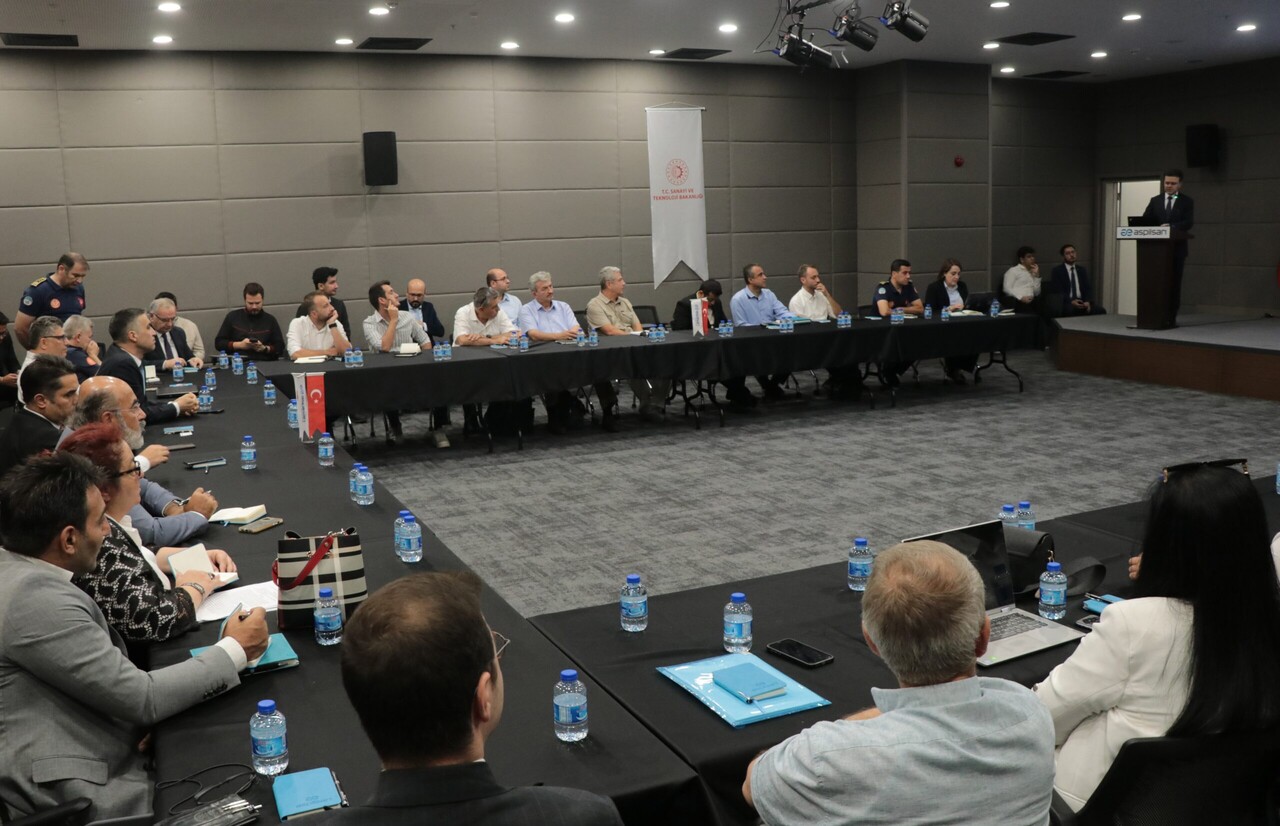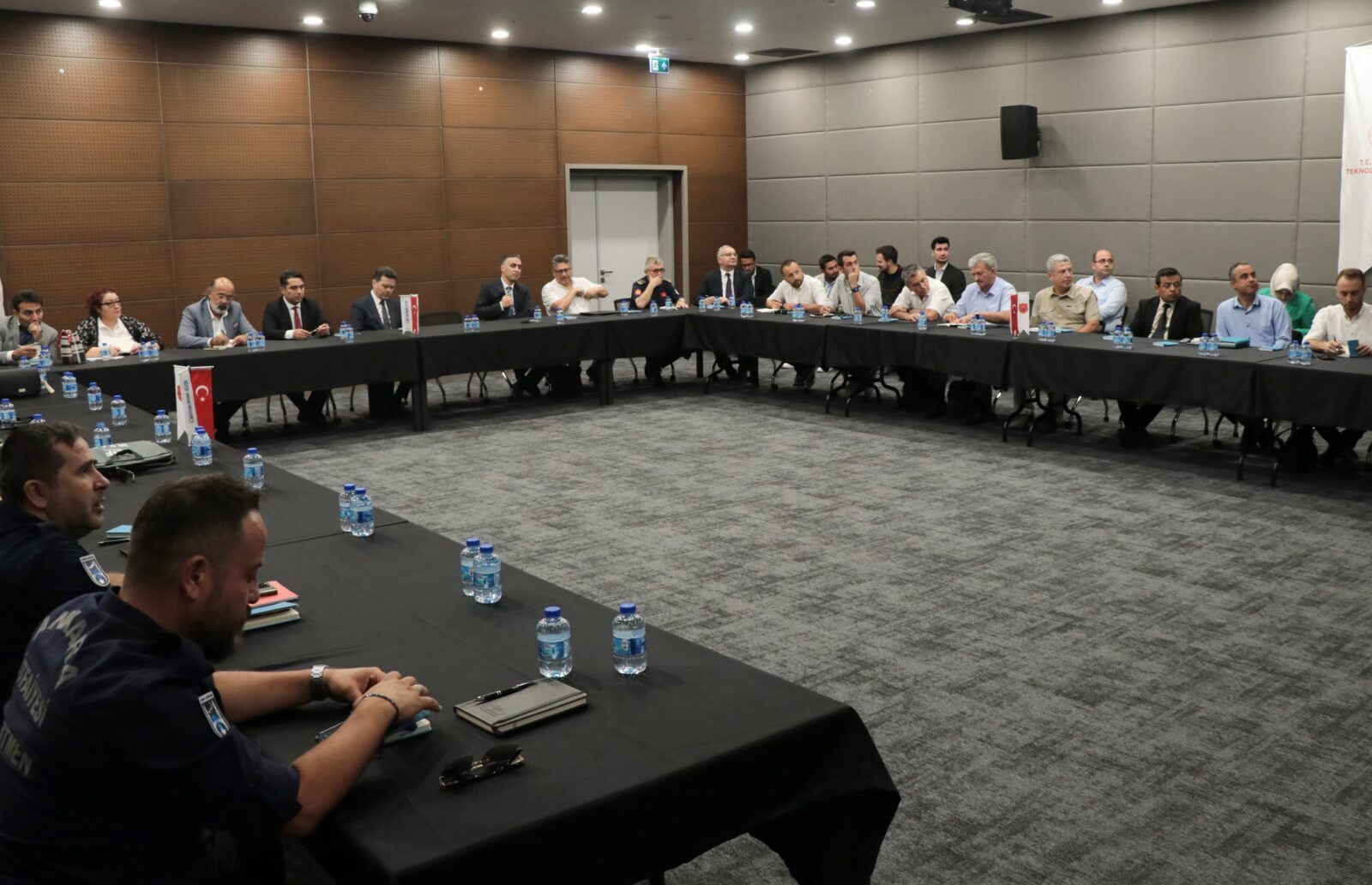Türkiye’s Aspilsan Energy hosts workshop on extinguishing lithium-ion battery fires
 Under the leadership of Aspilsan Energy, a "Workshop on Methods for Extinguishing Lithium-Ion Battery Fires" was held to identify methods for responding to battery fires. Kayseri, Türkiye, July 2, 2024 (AA Photo)
Under the leadership of Aspilsan Energy, a "Workshop on Methods for Extinguishing Lithium-Ion Battery Fires" was held to identify methods for responding to battery fires. Kayseri, Türkiye, July 2, 2024 (AA Photo)
Aspilsan Energy, with support from the Central Anatolia Development Agency (ORAN), organized a workshop titled “Methods for Extinguishing Lithium-Ion Battery Fires” to identify effective methods for addressing battery fires.
The event was held at their factory premises.
Speaking to journalists before the workshop, Aspilsan Energy General Manager Ahmet Turan Ozdemir emphasized their commitment, supported by the Presidency of Defense Industries and the Turkish Armed Forces Foundation, to advancing lithium-ion battery technology in Türkiye to a mature level.

Ozdemir explained the workshop covered the entire process from raw material intake to the creation of battery cells, assembly of these cells into batteries, and production of the final products.
Regarding the production process, Ozdemir stated: “While producing our batteries, we use 22 different raw materials, passing them through over 300 control points and 200 different quality tests, eventually forming a battery cell after over 500 checks. In situations such as extreme temperatures or high current draw, the internal pressure increases. Initially, the cell is designed to cut its current, and if the pressure persists, it has a system to release the pressure.”
“This is the first safety measure we take with the cell. Once the product is turned into a battery, it includes electronic circuits and software. We incorporate temperature sensors in the circuits and use artificial intelligence software to detect anomalies in the battery and cell, taking extra measures to prevent fires.”
“However, if a fire occurs despite these measures, it becomes necessary for the fire department to intervene. Since this technology is very new, fire departments are exploring and learning how to effectively respond,” Ozdemir added.
Ozdemir highlighted that Aspilsan Energy aims to develop a comprehensive knowledge base on effectively combating these fires by bringing together all components of the ecosystem, including infrastructure, personnel, customers, manufacturers of fire-fighting equipment and materials, chemical producers and academics.
He noted that personnel from the fire departments of Kayseri, Ankara and Istanbul participated in the workshop.
Additionally, academics from Sakarya University, Erciyes University and Kayseri University, along with company employees, showed significant interest in the event.



